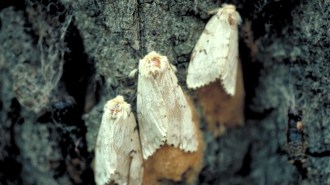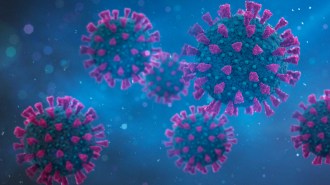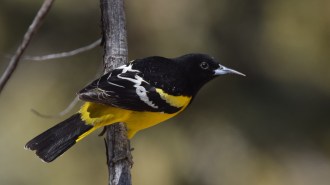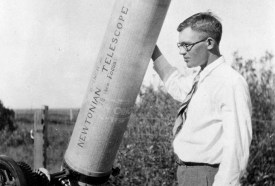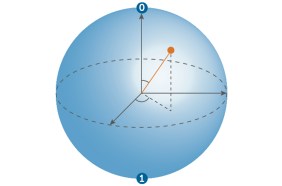
NASA, JHUAPL, SwRI
Summary
Pick your favorite quote about the power of words and there’s probably some truth to it. “Choose your words wisely.” “Good words are worth much, and cost little.” “The beginning of wisdom is the definition of terms.” How we talk about the world can certainly shape how we think about it.
From how we define “planet” to what we consider “sound science,” words can influence the questions scientists ask and the conclusions they draw (as well as how much trust they put in those conclusions). Words can spur new ideas — or stand in the way of a deeper understanding. Words can invite people to explore science — but can also make people feel that science isn’t for them; whether purposeful or not, words can exclude. When it comes to communicating science, careful word choice gets a lot of attention. How do you talk about evolution with people who don’t believe, for example? What’s the best way to say that human-caused climate change is real?
This collection highlights the many ways that the language we use affects science, and how people understand it.
Spotlights
Some common medical terms may be more confusing than doctors think
Got ‘bugs in your urine’ or an ‘impressive’ X-ray? Doctors’ jargon can be confusing, especially terms with different everyday and medical meanings.
The metric system is growing. Here’s what you need to know
Science News spoke with a metrologist about the metric system’s latest update, which will help scientists interpret exceedingly big and small numbers.
Why fuzzy definitions are a problem in the social sciences
Social sciences research is plagued by murky definitions and measurements. Here’s why that matters.
What do we mean by ‘COVID-19 changes your brain’?
The events of our lives are reflected in the size, shape and behavior of our constantly changing brains. The effects of COVID-19 changes aren’t clear.
The spongy moth’s new name replaces an ethnic slur
The Entomological Society of America renamed Lymantria dispar the “spongy moth,” replacing its previous problematic common name, “gypsy moth.”
Climate change communication should focus less on specific numbers
Even if nations don’t meet goals to curb global climate change, any progress is better than none.
Physicists have coaxed ultracold atoms into an elusive form of quantum matter
Quantum spin liquids could be used to help protect fragile information in quantum computers.
Are viruses alive, not alive or something in between? And why does it matter?
The way we talk about viruses can shift scientific research and our understanding of evolution.
New ideas on what makes a planet habitable could reshape the search for life
New definitions of “habitable worlds” could include planets with global oceans under a steamy hydrogen atmosphere or exclude ones that started out habitable but lost all their water.
Racism lurks in names given to plants and animals. That’s starting to change
Racist legacies linger in everyday lingo for birds, bugs and more. Some scientists see the chance to change that.
The definition of planet is still a sore point – especially among Pluto fans
In the 15 years since Pluto lost its planet status, scientists have continued to use the definition that works for them.
How the strange idea of ‘statistical significance’ was born
A mathematical ritual known as null hypothesis significance testing has led researchers astray since the 1950s.
Climate change disinformation is evolving. So are efforts to fight back
Researchers discuss effective ways to counter the changing tactics of climate denial.
Scientists sometimes conceal a lack of knowledge with vague words
Life, time, intelligence — plenty of terms used in science have imprecise definitions.
A century ago, astronomy’s Great Debate foreshadowed today’s view of the universe
The argument between Harlow Shapley and Heber Curtis 100 years ago was ultimately settled by Edwin Hubble.
Defining ‘species’ is a fuzzy art
Here's why scientists still don't agree on what a species is.




